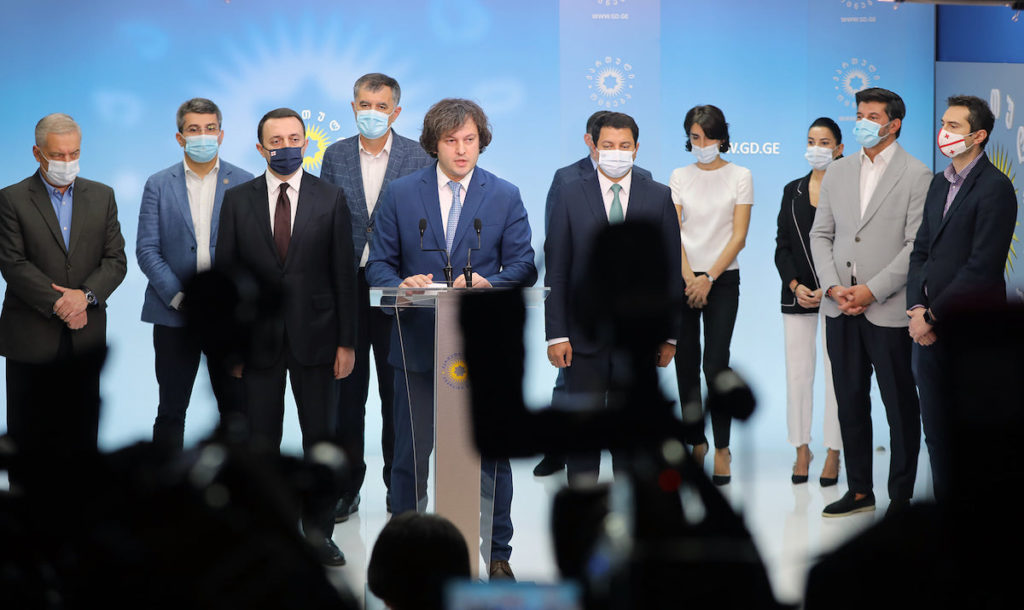TBILISI
Georgia’s ruling Georgia Dream party quit an EU-brokered political deal with the opposition two months ahead of local government elections, dealing another blow to the ex-Soviet country’s image in the West and jeopardise already fragile economic recovery.
Disputed parliamentary elections last year and the arrest of the opposition leader and activists set off a series of demonstrations. Finally, after months of EU-mediated talks, the government and some opposition leaders reached an agreement in April, although some parties, including the biggest opposition group, the United National Movement (UNM), refused to sign it. Two politicians from the parties concerned signed in a personal capacity.
The European Union hailed the agreement as a big step to end a crisis that was threatening to derail the country’s already vulnerable economy, which had suffered from ongoing political turmoil and the blow to tourism, its main driver, dealt by the COVID-19. The UNM’s leader, Nika Melia, was released from prison on bail and a majority of opposition politicians, including from the UNM, entered parliament.
As well as stipulating the release of “political prisoners”, the signed agreement included a commitment to judicial and electoral reforms, with a possibility to hold an early parliamentary election in 2022, if the ruling Georgian Dream party received less than 43 percent of the vote in October 2021 in local government elections.
The ruling party has now said that the deal has “served its mission and exhausted itself,” 100 days after signing it.
“We can see our international partners do not find it necessary to strictly demand from the radical opposition to sign and participate in implementing the document,” Irakli Kobakhidze, the ruling party chair, said. “One-sided loyalty to the April 19 agreement is insulting for our party, and our voters will not forgive us this.”
It was not immediately clear what the move would mean for political processes in the country and whether the ruling party would fulfil the deal’s clause on holding a snap parliamentary election in the event of it receiving less than 43 percent of the vote in local polls in October.
“We are ready to call snap elections on our goodwill, even if we receive 53 percent instead of 43 percent, as long as we see in the actions of the opposition parties that our political system is ripe for effective coalition governance.”
The ruling party’s withdrawal sparked criticism from opposition parties and independent observers.
One of the opposition leaders, Zurab Japaridze of Girchi-More Freedom, said he would leave parliament, while Mamuka Khazaradze, the Lelo Party leader, did not rule out that his party may boycott the upcoming vote in October.
“Georgian Dream’s withdrawal (from the EU-brokered deal) is a refusal to the country’s Euro-Atlantic future.,” Japaridze said.
“This is how dictatorship takes hold, slowly and arrogantly,” he added.
Many political analysts suggested that the ruling party took the decision to withdraw from the deal as it was afraid of not getting 43 percent of the vote in October.
“They took this step – at the cost of their own dignity and political reputation. This is truly inconceivable. A political crisis awaits us. And in the end, the state will suffer,” Gia Khukhashvili, an independent political analyst, said.

